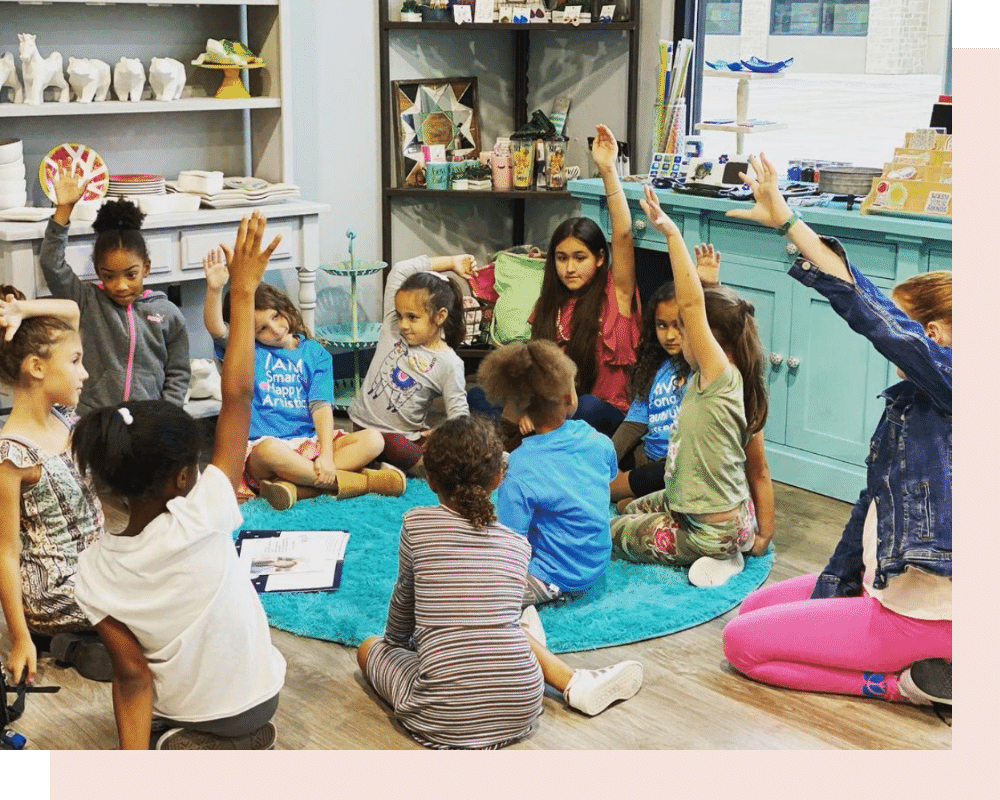We can help strengthen girls mental wellness in the aftermath of the pandemic.
The COVID-19 pandemic has had a profound impact on the mental health of people all over the world, and girls are no exception. The pandemic has brought about changes in the daily lives of girls that have been stressful, isolating, and disruptive. From social isolation to virtual learning, girls have faced unprecedented challenges that have impacted their mental health in a variety of ways.
Social Isolation and Loneliness
Social isolation has been one of the most significant challenges faced by girls during the pandemic. As schools shut down, extracurricular activities were canceled, and social distancing guidelines were implemented, girls found themselves cut off from the social networks that are so crucial to their well-being. The isolation and loneliness that many girls experienced during the pandemic have been linked to increased levels of anxiety, depression, and other mental health problems.
Research has shown that girls are more likely than boys to feel lonely and socially isolated, and the pandemic has only exacerbated this problem. A study conducted by the University of Oxford found that 71% of girls aged 14-18 reported feeling more lonely than usual during the pandemic. Girls who already struggled with mental health issues before the pandemic may have found it particularly challenging to cope with the added stress and isolation.
Increased Screen Time
The pandemic has also led to a significant increase in screen time for many girls. With schools closed, many girls have had to rely on virtual learning to continue their education. While virtual learning has been an essential tool for keeping girls engaged in their education, it has also led to a significant increase in screen time. The increased screen time has been linked to a range of mental health problems, including depression, anxiety, and sleep disturbances.
Girls who spend more time on social media are also at higher risk of developing mental health problems. Social media can be a double-edged sword for girls, as it provides a way to stay connected with friends but can also lead to feelings of inadequacy, loneliness, and low self-esteem. The constant barrage of images of perfect bodies, perfect lives, and perfect relationships can be particularly damaging to girls’ mental health, leading to a range of mental health problems, including anxiety, depression, and eating disorders.
Uncertainty about the Future
The pandemic has created a sense of uncertainty about the future that has been particularly challenging for girls. With so much disruption to their daily lives, many girls have been left feeling unsure about what the future holds. Uncertainty about the future can lead to feelings of anxiety, depression, and other mental health problems.
Girls who were already struggling with mental health issues before the pandemic may have found it particularly challenging to cope with the added uncertainty. The pandemic has created a sense of unpredictability that has left many girls feeling helpless and overwhelmed.
Increased Stress
The pandemic has brought about a range of stressors for girls. From concerns about their own health to worries about the health of loved ones, girls have had to cope with a significant amount of stress during the pandemic. The stressors of the pandemic have been linked to increased levels of anxiety, depression, and other mental health problems.
The pandemic has also brought about financial stress for many families. With so many people losing their jobs or experiencing financial hardship, girls may be worried about their family’s financial stability. Financial stress can lead to feelings of anxiety, depression, and other mental health problems.

What Can Be Done to Support Girls’ Mental Health Today?
By taking the initiative to address this issue, girls can be empowered to make decisions that will benefit their mental health and well-being.
Here are six ways to teach girls about the importance of caring for her mental health:
- Create a Safe Space for Open Communication: This is especially important for girls who may feel uncomfortable talking about mental health issues. Create an environment where your daughter can feel comfortable expressing her thoughts and feelings. Make it a priority to listen to her and provide her with guidance and resources. Encourage her to open up and discuss any issues she may be experiencing, no matter how small.
- Educate Her on Mental Health: Provide your daughter with age-appropriate information about mental health. Explain the different types of mental health conditions, symptoms, and treatments. Talk to her about the importance of self-care and the warning signs of mental health issues. Discuss stigma and how it affects people’s perceptions of mental health.
- Model Healthy Habits: Demonstrate to your daughter how to take care of her mental health. Demonstrate positive coping skills, such as deep breathing, meditation, journaling, and exercise. Make it a point to practice self-care and set aside time for yourself. She is picking up on your cues of how to take care of herself. As with all things, we get to lead by example.
- Encourage Healthy Social Connections: Girls need healthy social connections to thrive. Encourage your daughter to build and maintain positive relationships with family, friends, and peers. Talk to her about the importance of setting boundaries and respecting those of others.
- Help Her Find Support: If your daughter is struggling with mental health issues, help her find the support she needs. Talk to her about professional help and provide her with resources for finding the right therapist or doctor. While these are difficult conversations to initiate, they hold the power to get her the guidance and support that she needs.
- Lead by Example: You are your daughter’s role model. Show her that it’s okay to talk about mental health and that it’s important to take care of yourself. Lead by example and demonstrate the value of self-care and mental health awareness.








Leave A Comment